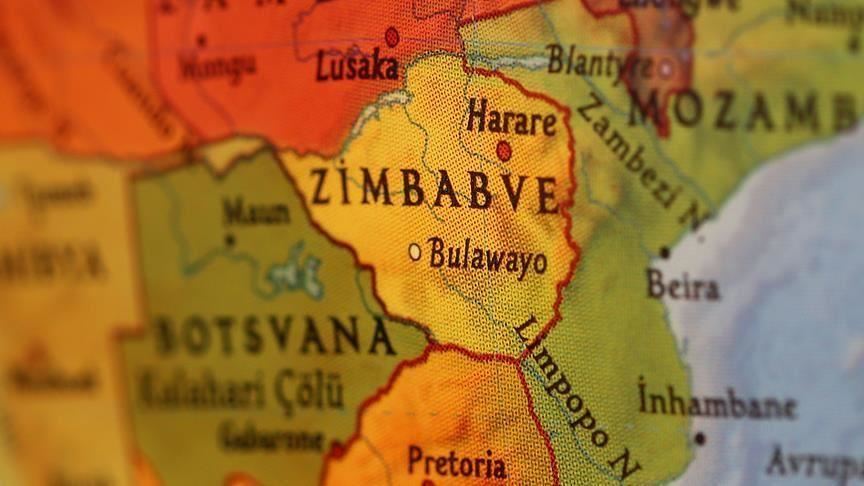Zimbabweans thrive amid economic crisis
Resilient entrepreneurs making strides despite comatose economy

HARARE, Zimbabwe
Touting for customers, 26-year-old Tenson Javangwe pushes a cart, stopping now and then in the midst of heavy traffic in Zimbabwe’s capital, Harare, wearing a waist pouch loaded with U.S. and Zimbabwean dollars.
“I make money, my brother. I’m not in Harare to play,” he brags as he gleefully shows off his pouch brimming with mostly U.S. one dollar bills.
Wiping the sweat from his forehead, he said he works extremely hard to earn his own money as a vendor, a job he claims to have started when he was 16.
As Zimbabwe’s economy teeters on the brink of collapse, entrepreneurs like Javangwe are thriving, even as the Poverty Reduction Forum Trust (PRFT) in July this year said an average family of six needed at least 1,685 Zimbabwean dollars to sufficiently secure food and non-food items.
The PRFT is a Zimbabwean civil society organization which seeks to influence the formulation of ‘pro-poor’ policies by conducting research on poverty-related issues and engaging with policymakers.
Although a 2017 report by the Zimbabwe National Statistics Agency (ZIMSTAT), a semi-autonomous agency under the Ministry of Macro-Economic Planning and Investment Promotion, pointed out that 71% (over 10 million) of the country’s population lived in poverty, vendors like Javangwe claim otherwise.
“I make 80 U.S. dollars every day and I have my own home because of vending using my cart. People see me like a mad person. But I tell you, those are the same people who are crying, saying Zimbabwe’s economy has destroyed them. Yet I have pounded the same harsh economy with my bare hands,” he said.
High unemployment
Although he is no longer among the ranks of Zimbabwe’s poverty-hit, Javangwe is one of millions of unemployed Zimbabweans.
According to labor unions like the Zimbabwe Congress of Trade Unions (ZCTU), 90% of the country’s roughly 14 million people are jobless.
Other entrepreneurs like Artwell Hungoidza and Trymore Mdzipurwa are also among the few apparently making strides amid the nation’s comatose economy.
Like Javangwe, they have swum against Zimbabwe’s economic tide, where month-on-month inflation has averaged 17% since February this year, according to civil society organizations like PRFT.
Hungoidza runs a number of market stalls in Mbare Township in Harare, where his business is thriving.
Dollar magic
“I have ditched accepting the Zimbabwean dollar, opting for the U.S. dollar -- a true store of value -- and people love it because my prices are low and don’t just change overnight, unlike Zimdollar prices,” Hungoidza told Anadolu Agency.
Boasting of employing 70 salespeople at his market stalls dotted around several locations in Harare, he said on a good day, he takes home approximately US$800, meaning on average, he earns US$24,000 a month before deducting rental costs and employee wages.
As such, Hungoidza is one of Zimbabwe’s unsung entrepreneurs who have silently surmounted the country’s economic hardships despite the government imposing a ban this year on the use of all foreign currencies.
Enduring a hostile economy
Even as Zimbabwe’s economy teeters, indigenous entrepreneurs, most of whom are young people, are having to make do with the harsh economy.
Zimbabwe’s annual inflation rate soared to nearly 300% in August, according to the International Monetary Fund (IMF).
Despite this, Mdzipurwa, who has invested in events management, has made a mark within two years after starting his business.
Not a crybaby anymore like many in Zimbabwe who daily bemoan the country’s faltering economy, Mdzipurwa is now a topnotch events manager and owns an events company called Kimstan Enterprises Private Limited.
In a country with approximately five million people involved in indigenous businesses, according to the government, of which Mdzipurwa now stands out, he said on average, he makes approximately US$400 at the minor events he secures weekly.
“I started my events company in 2017. It was not easy for me to penetrate the market, as it was already dominated by great people by the time I joined the industry. I would 'play for free’ during some events to endear myself to the market,” he said.
Anadolu Agency website contains only a portion of the news stories offered to subscribers in the AA News Broadcasting System (HAS), and in summarized form. Please contact us for subscription options.

